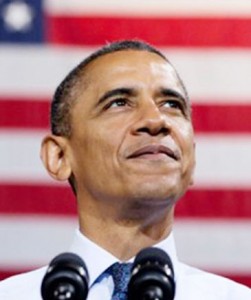 Editor’s note: This commentary from Jerry Newcombe appeared recently on The Christian Post.
Editor’s note: This commentary from Jerry Newcombe appeared recently on The Christian Post.
An old story tells of a big, successful store with a plaque in the employees’ lounge which read: “Rule 1: The customer’s always right. Rule 2: If you ever think the customer is wrong, reread Rule 1.”
I bring this up because the public-school education establishment (to be distinguished from the rank-and-file teachers, many of whom are dedicated public servants), often treat their customers as if they’re wrong, and as if the education elites know better than the parents.
School choice is the ultimate answer to America’s educational crisis, and there ought to be bipartisan agreement on it. School competition makes education better and gives all parents more options for their children. Even though the Left opposes it adamantly, some newspaper outlets surprisingly spoke out recently in favor of school choice.
Fox News reports: “The liberal Washington Post editorial board on Thursday broke rank with the left and pondered why Democrats are so opposed to giving poor children a choice in schooling.”
The Washington Post opined, "For 17 years, a federally funded K-12 scholarship program has given thousands of poor children in D.C. the opportunity to attend private schools and the chance to go on to college. And for many of those 17 years, the program has been in the crosshairs of unions and other opponents of private school vouchers.
To continue reading, click here.
 President Obama has often called on us to be true to who we are as a people, as Americans. And in his second term, he has the opportunity to transform the education system back to our core - to where parents are primarily in charge of children’s educations.
President Obama has often called on us to be true to who we are as a people, as Americans. And in his second term, he has the opportunity to transform the education system back to our core - to where parents are primarily in charge of children’s educations.
We have paid a price for transferring authority and responsibility for educating children from parents to government entities. With mostly though not always good motives (remember Brown v. Board of Education), we allowed the dream of the government-owned and operated common school to live on despite overwhelming evidence that, in reality, it wasn’t working. A child’s educational destiny continues mostly to be a function of his/her zip code and the competence of strangers who sit on local school boards.
For more than three decades, a long, slow correction of this anomaly in American society has been underway. First, intradistrict and interdistrict transfers began to appear that allowed limited parental choice within some parts of the public school system. Then magnet schools surfaced, offering options such as vocational, talented and gifted, and language immersion programs, and responding to more demands. In 1992, charter schools emerged. Today they account for almost 6 percent of all public schools, approaching 6000 total, and the number grows steadily each year because the demand from parents so far is insatiable.
Thanks to my colleague at the American Center for School Choice, Gloria Romero, a new tool has appeared. The parent trigger empowers parents to make changes to their school when they are not satisfied. Already 20 states have considered the approach and seven have adopted laws.
Private school choice programs continue to gain support, too. And they have done so despite fierce opposition from forces that want to defend market share over a parent’s right to choose. Today, 32 such programs operate in the country. And in recent years, many school choice bills have either been passed by legislatures with Democratic majorities or signed by Democratic governors. Just as important, once enacted, these programs have only grown. No state has repealed a program or decided choice does not serve the public well. Moreover, the doomsday scenarios that opponents consistently forecast for public education systems have never happened.
It’s said you can’t argue with a river; it is going to flow. Parents are going to take back the authority and responsibility for educating their children. The river has been flowing for more than 20 years and the current is gaining speed. It’s time for more Democrats to stop arguing as families assert their fundamental and universally accepted American value that they know the best choice for their children. Democrats need to work in positive ways to transform our system. We need good schools and there’s plenty of room for all types - public, charter, and private.
President Obama has the life experience, as well as the political skills and credentials, to lead this transformation, and to make it less jarring and less confrontational. (more…)
One of Arkansas’s top school choice advocates, Laurie Lee, is on the road this month in her home state, visiting 28 cities in four weeks to spread the gospel of education reform.
Arkansas ranked No. 5 among states in an Education Week report that gave it a B- overall. The national average was a C.
But look closer at the findings, said Lee in a phone interview, as she headed toward Mountain View. Arkansas netted a D for its K-12 achievement. Its graduation rate is 70 percent. And of those students who do graduate, 18 percent aren’t ready for college coursework, Lee said.
“Overall, our state’s economy is waning,’’ she said. “We’re losing jobs and foreclosure is high. And you can tie it all back to education.’’
That’s what led Lee to organize The Arkansas Reform Alliance or TARA, a grassroots nonprofit coalition that represents parents, educators and community leaders who want to increase school accountability and improve student success.
Expanding school choice is high on its list.
“We need more options,’’ said Lee, the alliance’s executive director. Her daughters were enrolled in public schools before she switched them to private, virtual and home education in search of the best fit.
Arkansas is home to 18 open enrollment charter schools and 14 district-conversion charter schools, public schools that were converted into charter schools, according to the state Department of Education website.
But to Lee’s group and others, that’s nowhere near enough. They want fewer restrictions on public school transfers. They want more charter and virtual programs. And they want tax-credit scholarships and vouchers. (more…)
 Gov. Romney gave a speech last month to a Hispanic audience calling for more school choice for parents. He promised, if elected president, to provide all children from low-income families and all special needs children with choice in a broad range of public and (where legal) private schools. This is a promise that should very much please school choice supporters.
Gov. Romney gave a speech last month to a Hispanic audience calling for more school choice for parents. He promised, if elected president, to provide all children from low-income families and all special needs children with choice in a broad range of public and (where legal) private schools. This is a promise that should very much please school choice supporters.
The likelihood of Congress actually passing such a plan may be small, but a president can provide leadership (although this could turn out to be like many of President Reagan’s pro-family promises during his campaigns that failed to yield actual policy changes).
While Romney’s broad rhetoric was attractive, what was distressing about his talk is the uncertainty as to just how his promise could be delivered. As I will explain, I fear the Romney team has not sufficiently thought through the details.
For public school choices that families would make, things are clear enough. Today, federal funding for low-income and special needs students is distributed in a very complicated way. Romney’s plan would simplify things by converting that funding into specific amounts per eligible pupil and, more importantly, that per pupil funding would follow the child to the school he or she actually attended, whether traditional, charter, magnet, out-of-district, or whatever – thereby providing the child’s school with extra money to help pay for extra services the children from low-income families may need in order to achieve at grade level. This is how federal aid to education should be working already and is overdue.
But for those families choosing private schools, the proposal is much murkier. Federal aid to education is a small share of overall school funding, and so a low-income child’s per pupil share of federal aid (say, $2,000 a year) would, in most cases, be far too little to pay the tuition at either a religious or secular private school. Put differently, we are talking about a sum that would be far less than the $7,500 per pupil now provided by the federal government (by way of vouchers) to low-income families in the District of Columbia who send their children to private schools participating in the voucher plan (a successful program that Romney supports continuing). (more…)
An activist becomes unhinged at a Washington Times reporter, who challenges D.C. Mayor Vincent Gray during a press conference in which Gray and several others voice their opposition to the reauthorization of the district's Opportunity Scholarship Program.
The last-minute spending deal among Congressional leaders adds money to the D.C. Opportunity Scholarship, the Washington Post and the Wall Street Journal are reporting. The revival of the scholarship is a top priority of House Speaker John Boehner, who has sponsored a measure that passed the House last month. That was just about the time the White House issued a statement asserting that the scholarship has proven ineffective.
Senate Majority Leader Harry M. Reid said of the eleventh-hour negotiations: “We didn’t do it at this late hour for drama, we did it because it’s been very hard to arrive at this point. Both sides have had to make tough choices.”
It may have drawn bigger headlines if President Obama had supported the D.C. Opportunity Scholarship, but his continued opposition to the program is all the more disappointing for its tenor. The White House's most recent assertion that the program has proven ineffective reads more like a screed from the National Education Association, not from a president whose education secretary is committed, as he said in December, "to empower parents and help them figure out what the best learning environment is for their child."
The absolute characterization that the Opportunity Scholarship has failed to boost achievement and has targeted "a small number of individuals" contrasts illogically with the president's embrace of charter schools, which are no more a scalable solution for all that afflicts public education than are vouchers. Additionally, the administration's statement assumes that vouchers help the few while dooming the rest. The president isn't naive; even if he won't accept the evidence showing positive fiscal and academic imprints left by vouchers in D.C. and in other states, Obama surely can't claim the Opportunity Scholarship hurts the children who remain in public schools. As the Washington Post today stated in its editorial written in response to the president's opposition, the White House has a right to its opinion, but it "doesn't have a right to make up facts."
And so, we are assured further partisan division in Congress over an idea that has attracted more Democratic support in several states for the dignity it brings to low-income families. In today's Indianapolis Star, Michelle Rhee told an interviewer that, as a Democrat, she first came to D.C. and responded to vouchers the way she thought Democrats were supposed to. Then, she said:
I actually changed my mind after I had met lots of families who by my perception were doing exactly the right thing. They researched their neighborhood school, found it was a failing school, said "that is not good enough for my child," then they turned in an application for a dozen high-performing schools on the other side of town. They didn't get a spot through the lottery. They would come to my office and say "now what do I do?" I thought, who am I to deny this family a $7,500 voucher so they could go to, say, a Catholic school where they would get a great education?
The Post editorial board tonight challenges the White House's assertion that the D.C. Opportunity Scholarship has failed to demonstrate progress in raising the achievement of the low-income students who benefit. "The White House has a right to its own opinion, as wrongheaded as we believe it to be," it begins. "It doesn't have a right to make up facts."
But beyond the academic progress the program has made -- progress that, as the editorial notes, has been charted rigorously and reported before the Senate -- the Post supports the program, above all, for the dignity it provides to families who have felt all but disempowered without it:
There are, we believe, other benefits to a program that expands educational opportunities for disadvantaged children. The program, which provides vouchers of $7,500 to low-income, mainly minority students to attend private schools, is highly regarded by parents, who often feel it allows their children to attend safer schools or ones that strongly promote achievement. Our view has never been that this voucher program is a substitute for public school or public school reform. But while that reform proceeds, scholarships allow a few thousand poor children to escape failing schools and exercise a right that middle-class parents take for granted — the right, and dignity, of choice.
UPDATE: The Washington Post on the committee's vote.
The U.S. House Committee on Oversight and Government Reform voted 21-14 today to approve John Boehner's proposed renewal of the D.C. Opportunity Scholarship program.
When John Boehner and Joe Lieberman introduce legislation on Wednesday that would reauthorize the D.C. Opportunity Scholarship Program, as anticipated, they would be wise to look to Florida if they’re looking for bipartisan results, as Boehner has indicated. Lieberman, who became an independent only in 2006, championed voucher proposals for years as a Democrat, but that has never buoyed hopes among the program’s advocates for a bipartisan embrace. Only three other Democratic senators stood by Lieberman in his effort last March to reauthorize the scholarship.
By contrast, nearly half the Democrats in the Florida Legislature now support the Tax Credit Scholarship for low-income students, along with two-third of the Black Caucus and all but two members of the Hispanic Caucus. But that ratio of Democrats to Republicans wasn’t always the case. When the Legislature approved the program nearly 10 years ago, only one Democrat backed the plan.
What changed, and why is Florida so different? As Mike Petrilli of the Fordham Institute told a St. Petersburg Times reporter last year, the chief proponents of the Tax Credit Scholarship have cooled the political rhetoric from years past. That’s unlike Boehner’s provocation at President Obama. The House speaker’s statement to reporters begins, “If the president is sincere about working together on education reform …”
When it came time to consider a bill that would expand and strengthen the scholarship program, the Florida Legislature collectively approved the measure by a 122-34 margin. The following is a selection of quotes from lawmakers who voiced their support on the House or Senate floors. Try to spot who’s a Democrat and who’s a Republican. The answer(s) will follow: (more…)